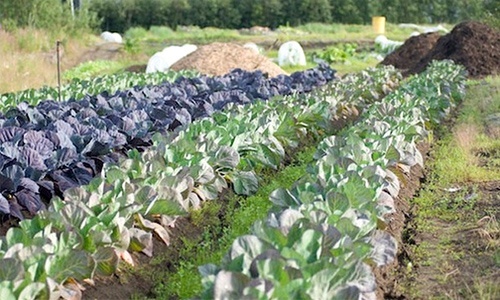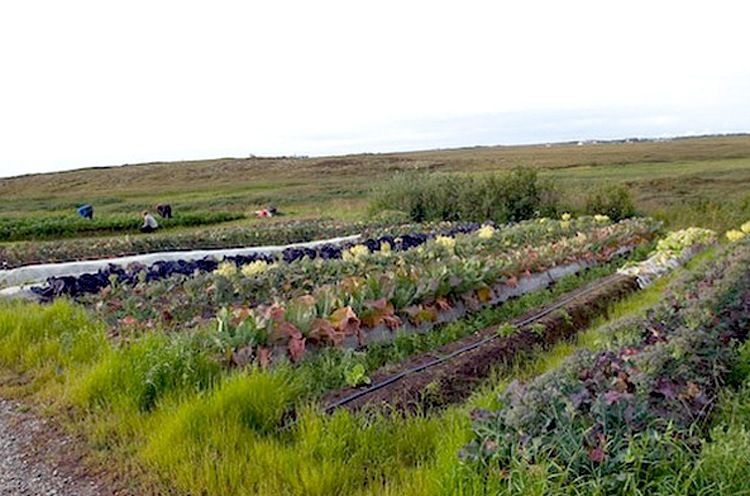

The negative impacts of climate change in Alaska are abundantly clear. At a Senate hearing earlier this year, Bernie Sanders called the Last Frontier a “canary in the coal mine” when it comes to climate change.
It’s warming twice as fast as the rest of the U.S., and, as President Obama said during his visit to the state in September, the effects of that warming can be seen everywhere. Glaciers are rapidly melting, driving sea level rise. And if the permafrost continues to thaw, trapped carbon could escape to the atmosphere as carbon dioxide or methane, and communities would face land subsidence.
But at least one Alaskan farmer has found a silver lining in this rapidly warming environment. Tim Meyers, who runs a 15-acre organic farm in Bethel, Alaska, admits, “I hate to say [it] but I guess I’m taking advantage of the fact that it is getting warmer.”
At the farm, which has been operating for more than a decade, “Meyers is growing crops like strawberries in greenhouses,” reports NPR. “But he says as temperatures warm due to climate change, it’s easier to grow things like potatoes, cabbages and kale right in the ground, outside.”
“Years ago, it was hard freeze and below zero up to the third week in May,” he says. “We haven’t had any of that this winter.”
Listen here:
YOU MIGHT ALSO LIKE
CBS Reporter Ben Swann Tells the Truth About CDC Vaccine Cover-Up
Plastic Bags and Fishing Nets Found in Stomach of Dead Whale
Volkswagen to Release Electric Version of Its Iconic Hippie Van

 233k
233k  41k
41k  Subscribe
Subscribe 

